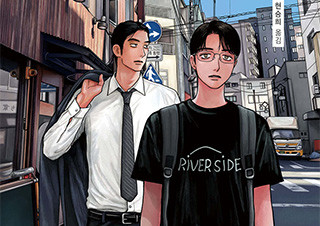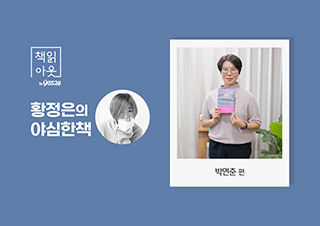During the Japanese occupation of Korea, Yeong-ae (Kim Sae-ron (김새론), the arrogant daughter of a rich man in the village, studies hard to learn the language of the hostile force and be accepted within the ranks. Poverty-stricken Jong-boon (Kim Hyang-ki (김향기), meanwhile, must contend herself with menial chores until the possibility of marrying out of hardship arises. Yet when the Japanese forces come looking for girls to be ‘comfort women’ – or rather, sexual slaves – financial status does not enter consideration and both youngsters are abducted into a life of horrific servitude.
In the present day Jong-boon (Kim Yeong-ok (김영옥), now an elderly woman, lives alone in a dilapidated part of town. Noticing that her teenage neighbour Eun-soo (Cho Soo-hyang (조수향) is in trouble, she takes it alone herself to help the girl and in doing so is forced to confront the traumatic experiences of her past.
Snowy Road originally aired as a two-part television drama, yet for the purpose of a cinematic release the episodes have been edited together to create a powerful testament to the horrific abuses Korean women suffered during the Japanese occupation. Despite a large number of films and documentaries exploring the subject matter over the years, upon receiving its world premiere at Jeonju Film Festival 2015, Snowy Road left audiences sobbing at the depiction of two of Korea’s youngest and most celebrated actresses reenacting the torture so many women suffered at the hands of the Japanese Imperial Army. While the film does not always escape the production shortcomings and melodramatic trappings of K-drama, Snowy Road is a particularly emotional piece that strongly resonates.
Director Lee Na-jeong and writer Yoo Bo-ra have crafted an impressive tribute to women’s suffering in both the past and present through the non-linear story, cutting between the two periods to reinforce how women’s rights have changed and how far they have yet to go. For scenes in the past, director Lee conveys the atrocities committed to Korean women through the abduction, imprisonment and abuses Yeong-ae and Jong-boon endure at the hands of the Japanese. Yet in the present a rather different set of injustices are dealt with, as elderly Jong-boon is routinely treated with disrespect while her young charge Eun-soo, alone and in need of money, becomes easy prey for wealthy middle-aged men. It is difficult to state how brave director Lee and writer Yoo are for examining the abuses of the past (Japanese men) and present (Korean men) and depicting them parallel to each other through the narrative, especially given the current highly conservative and patriarchal political climate, as well as with anti-Japanese sentiment so high following Prime Minister Abe’s denial that the incidents ever occurred. That is not to say that the crimes are in any way equal – rather, that Lee and Yoo’s bravery comes from not over-simplifying the debates put forth as purely the result of an external ‘other’, but also critically looking within contemporary Korean culture to explore the plights that effect modern Korean women. Snowy Road presents the issues well, impressively articulating that women need to stand united against injustices past and present to draw attention to their plight, rather than internalise guilt and shame.
While Snowy Road ambitiously tackles such sensitive issues competently, the film consistently struggles to escape its origins, existing somewhere between a TV drama and film but not quite fitting into either category. Cinematography of landscapes are generally composed with skill and appear cinematic, yet when faced with more intimate moments or generating tension the budget limitations become increasingly clear. As such crucial scenes, most explicitly apparent at the internment camp where Yeong-ae and Jong-boon are abused, lack the potency and sense of urgency that a film of this nature should contain.
The film also falls into cliche TV drama territory as the narrative attempts to come to a close. Melodrama has long been a feature of Korean TV and film output so it comes as little surprise that such generic devices arise in Snowy Road, however a film dealing with the subject matter of comfort women hardly requires such heavy-handed efforts to evoke tears from the audience. The story is tragic enough without additional manipulative melodramatic tropes, and their inclusion does a disservice to those who experienced such horrific trauma.
However that said, director Lee has chosen a particularly solid cast to express the issues being put forth. Kim Sae-ron is really developing into a wonderfully talented actress, and following her stellar performance in A Girl at My Door she exudes the icy arrogance of her character in Snowy Road delightfully. Playing off Kim’s cold demeanour is no small effort yet Kim Hyang-ki (Thread of Lies) is especially likeable as the young and warm-hearted Jong-boon. The actresses have established their careers with monikers such as ‘the nation’s daughters’ which undoubtedly serves to generate even more emotional resonance. The actresses in the present are somewhat shortchanged by the script yet Cho Soo-hyang, who scored Best Actress at Busan Film Festival 2014 for Wild Flowers, and Kim Yeong-ok acquit themselves admirably.
Verdict:
Snowy Road is a highly emotional charged film about ‘comfort women’ and the horrific abuses they suffered during the Japanese occupation. Yet director Lee Na-jeong and writer Yoo Bo-ra impressively combine the sensitive subject matter with the issues faced by contemporary women, and deserve credit for it. While the film often struggles to escape its TV drama origins, Snowy Road is a powerful and resonating story on a vital topic.
★★★☆☆






![[윤아랑 칼럼] 세계를 사랑하는 각자의 방식 - 『알려진 세계』와 『격정세계』](http://image.yes24.com/images/chyes24/8/2/8/1/828113cdafffa139b86a747d657a772c.jpg)
![[예스티비 점심신간] Ep.5 어감, 메타버스, 오한기](http://image.yes24.com/images/chyes24/c/e/8/2/ce82e44b032708577689d2cb23aab16e.jpg)
![[한승혜의 꽤 괜찮은 책] 연애가 뭐길래 - 『가장 공적인 연애사』](http://image.yes24.com/images/chyes24/9/8/9/6/9896cee23b836c2fba236a409a0c4f65.jpg)
![[이소연 칼럼] 다단계에 빠진 예비 신부](http://image.yes24.com/images/chyes24/c/1/d/d/c1ddc5e90ec3133971e56737d4e0afe2.jpg)














